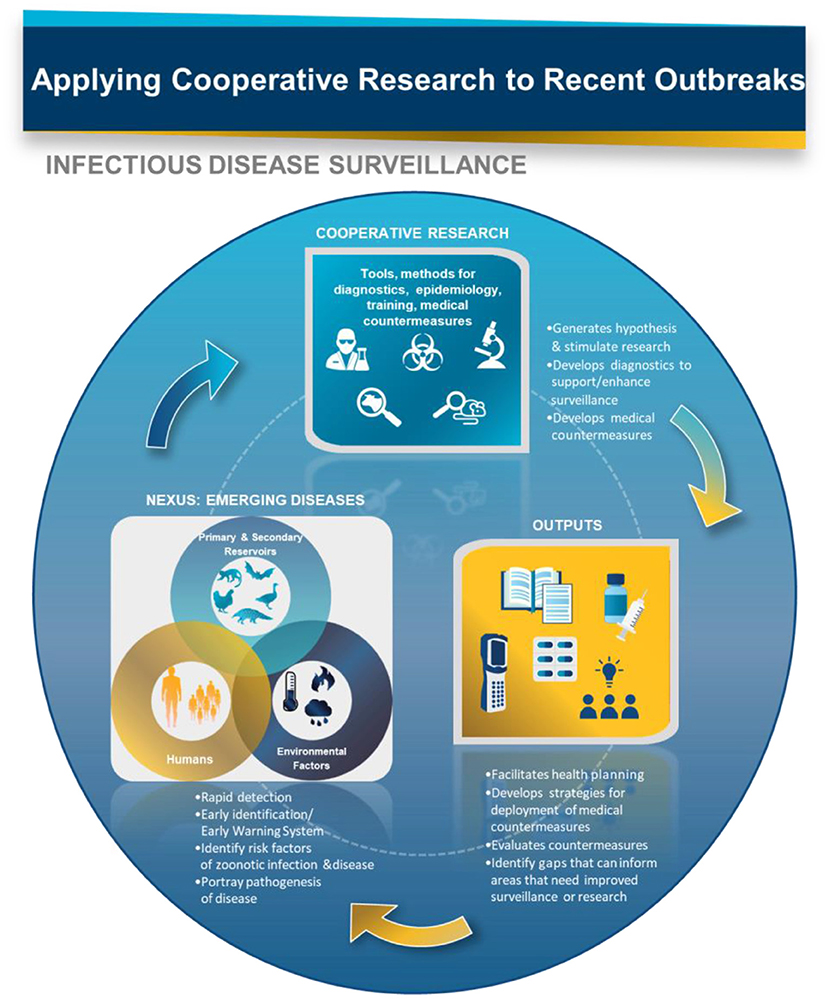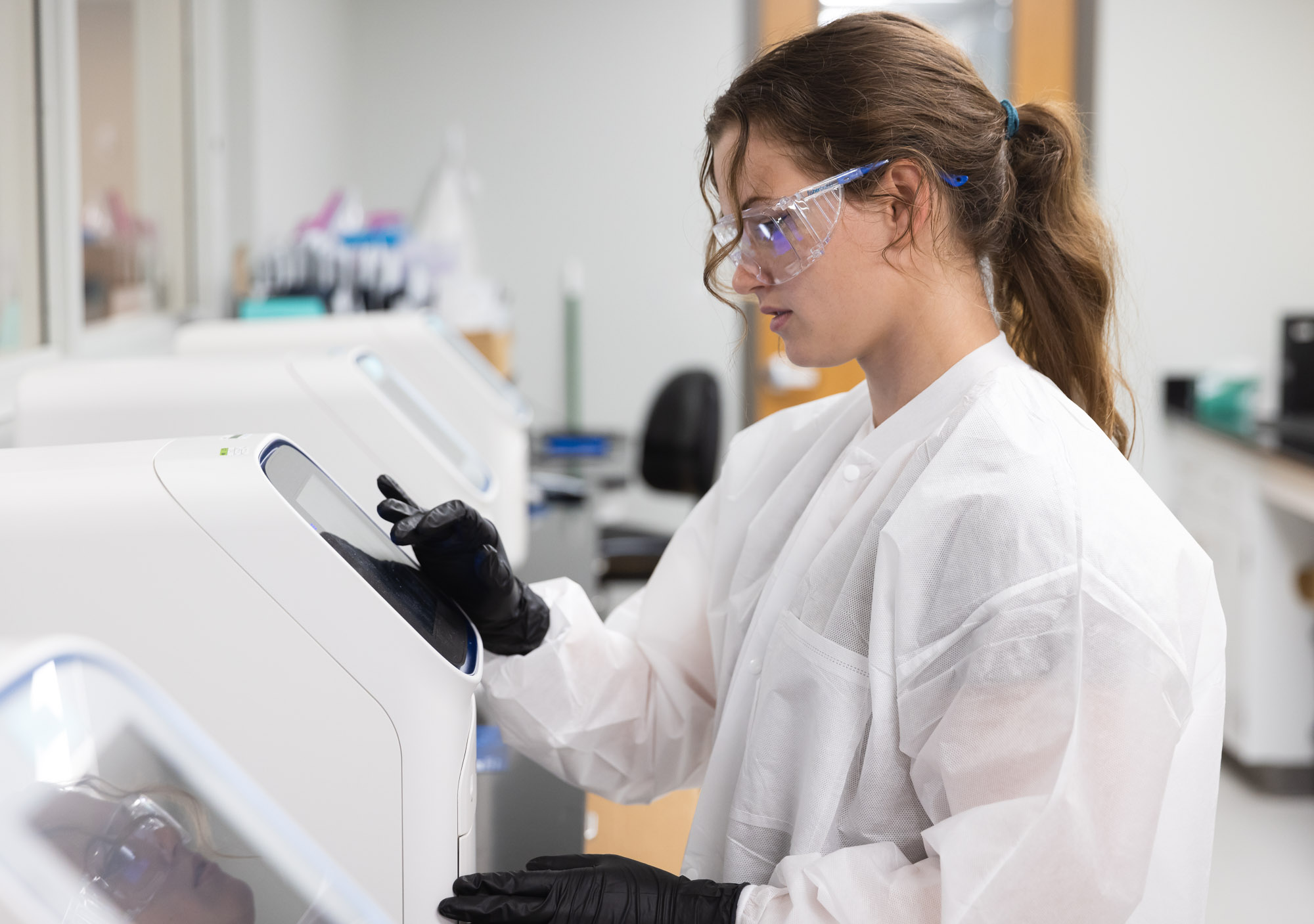The Need for Multidisciplinary Engagement and Building Robust Networks
During infectious disease outbreaks, both formal and informal networks are critical for a rapid and coordinated response. The return on investment for cooperative engagement programs became evident immediately in the 2020 COVID-19 pandemic. As the world moves into the future challenges of both a rapidly changing climate and increased threat of infectious diseases, scientific networks must be designed to be sustainable from the beginning and have a core vision of remaining sustainable.
As is often repeated, “If you exchange business cards on the first day of an outbreak, the pathogen has already won.”
Scientific collaboration networks can exist formally or informally and focus on any given specific disease topic, a technology such as genomics and sequencing, or an emerging field such as ecoimmunology. One of the best ways to create sustainable capabilities within countries is to connect researchers and technical professionals, enabling cooperation or sharing expertise and information. Research designed to tackle more global and complex challenges requires the use of predictive analytics like AI/ML, coupled with team science that cross potentially more than a dozen fields in one project, bringing together multiple technologies and data streams. The complexities in such a multidisciplinary approach require a new look at how to better cooperate, collaborate, coordinate, and communicate. Informal networks are the connections, professional relationships, and source of contacts that scientists often leverage throughout their careers. These contacts include fellow researchers, peer colleagues, and mentor/mentees that connect at scientific conferences and related collaborations. These scientists maintain informal networks independently.
As science becomes more multidisciplinary across disparate fields, the breadth of the informal networks between researchers is becoming larger and more diverse. For example, infectious disease research requires understanding the ecology of an emerging or endemic infectious disease system where epidemiologists may work with meteorologists, sociologists, wildlife biologists, and geographers. With unlimited access between researchers through the internet, general connections are not endangered, however, trusted relationships and sustained connections are rarer. Cooperative engagement research is designed to build trusting and long-term relationships. The COVID-19 pandemic has led to an unprecedented amount of work, and it was through the trusted collaborations that existed prior to the pandemic that the critical initial data and information on the coronavirus was shared. Also, with the COVID-19 pandemic, most networks became virtual. Having a low-cost virtual platform for connecting can help networks become sustainable into the future if and when funding ends. Despite these changes in connectivity and potential lowering costs to collaborate, resources – specifically funding – remain a critical hurdle to sustain meaningful research.
Established during the COVID-19 pandemic as a novel multidisciplinary and cooperative approach, research scientists from MRIGlobal, EpiPointe LLC, CIRMF, UK Health Security Agency, London School of Hygiene and Tropical Medicine, Los Alamos National Laboratory, and the Jacobs School of Medicine and Biomedical Sciences at the University at Buffalo have been making investments in preparedness through ongoing partnership. This international collaboration across sectors will help during a future outbreak by accelerating funding opportunities and enhancing communication and coordination among partners.

GETTING STARTED AT MRIGLOBAL
Contact MRIGlobal for further information about our work with infectious diseases. Through an interdisciplinary approach, we provide scientific and subject matter expertise for development of medical countermeasures research against specific threats, while expanding and accelerating the delivery of high quality clinical diagnostic products.
To discuss how we can help your project be successful, contact us today.
SIGN UP FOR OUR NEWSLETTER
Sign up for the MRIGlobal newsletter! It’s the best way to get the latest updates in the world of applied scientific engineering research delivered directly to your inbox.

